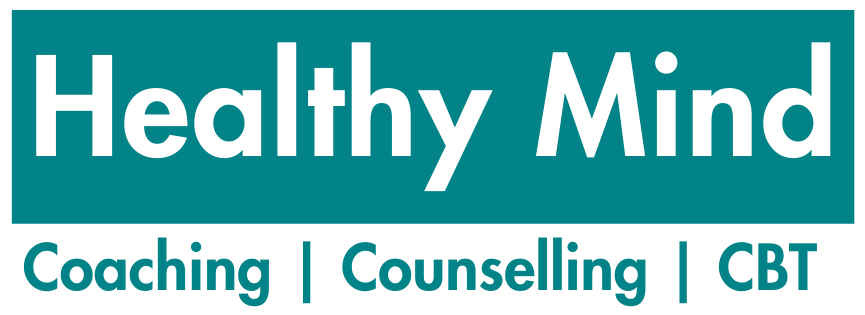Forgive yourself for past mistakes
It’s time to stop beating yourself up for things you did wrong, for missed opportunities, for not knowing what you do know now. We all have regrets but dwelling on them just weighs us down unnecessarily. Self-forgiveness begins with acknowledging your faults, mistakes, making amends (if possible), learning from your past, mistakes, and deciding to focus on the present and future rather than the past.
Treat yourself with the same love that you give others
For most of us, it’s easier to be kind to others, yes-even strangers – than it is to be considerate with ourselves. We hold ourselves to far too high standards and feel undeserving of a kind word, act or even basic self-care/love. You need to try treating yourself like a valued friend. Notice when you’re being cruel or withholding comfort from yourself and instead give yourself what you’d give to a friend – validation, encouragement, or treated kindly.
Have fun in life
Hobbies, play, and laughter are all good for our mental health & wellbeing. Be sure your time includes activities that you do purely for fun, pleasure. If you’re not sure what you like to do for fun, think about it?
Trust yourself
To trust ourselves, we must consistently meet our expectational needs; we must show up for ourselves in times of need with kindness and comfort. We need to feel confident that we’ll act in our own best interest, value ourselves, and look after ourselves. You can start building self-trust by committing to do one small thing for yourself today and following through with it. Generally, it’s essential that this self-commitment is doable, so don’t choose something that’s a huge stretch. Consistently keeping your promises to yourself and others also builds self-trust.
Rest when you’re tired
Rest is essential and the appropriate response to both physical and emotional tiredness. Yet, so many people feel guilty for resting, for not being productive all the time. Rest helps us clear our minds and refresh our bodies. It’s certainly not a waste of time!
Set boundaries
Boundaries protect your energy, time, and also safety. They communicate your expectations and help others understand what’s fine with you and what’s not. However, when you’re not used to setting boundaries, it can be confusing. Take it slowly and suit yourself. Learning to set boundaries is a skill that we learn with practice. Start by identifying what your needs are, how you want to be treated by others, and remind yourself that your needs are valid and communicating them in an assertive manner is healthy.
Let go of resentments (hindrances)
Are you holding onto bitterness, anger, and resentment? This takes up unnecessary energy that you could be using for more positive and productive pursuits. Letting go of anger doesn’t mean you’re forgiving or choosing to continue in a relationship with someone who hurt you. It only means that you’re choosing not to put any more mental effort or energy into negative thoughts and feelings. Talk with a healthy mind coach/ therapist about what happened and how it is affecting you, identify what feelings you have beyond anger, acknowledge how you may have the problem going on for too long, practice self-compassion, and consciously choose to release your frustrations and anger. (Take anger management sessions at healthy mind coaching).
Say goodbye to negative, difficult, or unhelpful people
Ending a relationship – even an unhealthy or confusing one – is painful. Spending time with people who are consistently negative, down, judgmental, over critical, or unsupportive can contribute to anxiety and depression and will deteriorate your own self-esteem and will make it difficult for you to pursue your goals and have good self-care. Sometimes ending relationships with negative/ draining people is the only way to restore your emotional health. Ending unfulfilling relationships makes room for happier or healthier people in your life.
Accept your feelings without judgement
How often do you dismiss, play down, or minimise your feelings or even tell yourself that your feelings are not good? Your feelings are trying to tell you something important and when you ignore them, they contribute to physical and mental health problems, unhealthy coping behaviours and stress. Instead of this, make space for your intuitive feelings. Invite them in without judgement. Be curious about why they are there, try to comfort yourself in healthy ways if they are hard or difficult to deal with and remember that feelings don’t last forever.
Take responsibility for your life
Others may have hurt you in the past or held you back in different ways, but ultimately you are responsible for your own life — and blaming others doesn’t help you create a more satisfying and fulfilling life. Own your mistakes, decisions and choices. Try not to blame others for your problems or get stuck in a victimhood mindset. Learn from what isn’t working for you and take responsibility for changing what you can or need to change.
Focus on what you can control
Many things in life are outside our control, especially what other people think and do. When we put our time, efforts, and energy into trying to change people or situations that are beyond our control, we usually end up frustrated, angry, disillusioned, and resentful. It’s wiser to decide (what we can control, as in ourselves) and what we can’t control and then focus on changing our thoughts, feelings, and behaviours as necessary (CBT – Healthy Mind Coaching).
Take chances rather than always playing it safe
Being perfect and fearing failure can keep us from trying new things and taking risks. We just keep on doing what we’ve always done because it’s safe. We don’t want to face failure or be criticised by others, so we only do things that we’re comfortable with or good at. The problem is that we miss out on opportunities that could help us and we self-limit our success, adventure, and fun by playing it safe. You should step out of your comfort zone from time to time. Try something new and consider the possibility that things may turn out better than you think.
Notice the positives in your life
It’s easy to notice everything that goes wrong and not so well, what we don’t have, all our problems, failures, and life frustrations. It’s much harder to notice what’s going right for you, how much you have, joys, successes, and progress. But with good intentions and practice, we can learn to notice the good things in your life, which is encouraging and motivating; and gives us a more balanced outlook on life.
Speak up for yourself
Many of us fail to be assertive and positive because we think it’s selfish, so we say nothing. We allow others to be mistreated, we don’t voice our ideas and opinions, and we build resentments because we expect others to know what we want or need – even when we haven’t communicated our wants/needs properly and decisively. When we’re passive, we don’t respect and value ourselves. Assertive communication shows respect for us and for others. And we owe it to ourselves to speak out when appropriate.
Learn more about Healthy Mind Coaching and Training by calling Sam today on 07906 869616 or email: [email protected]






